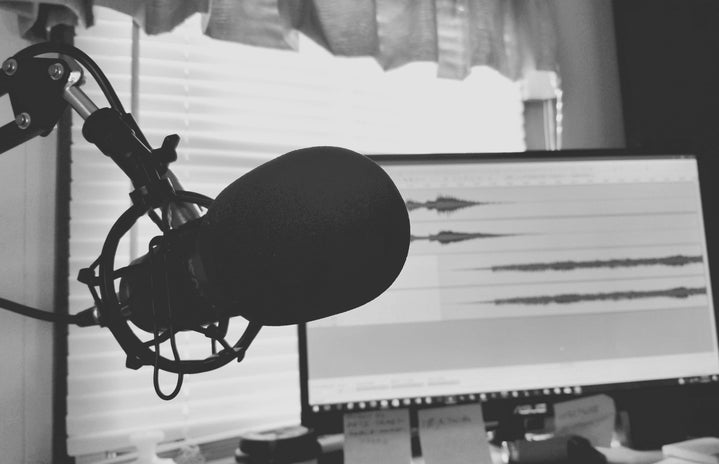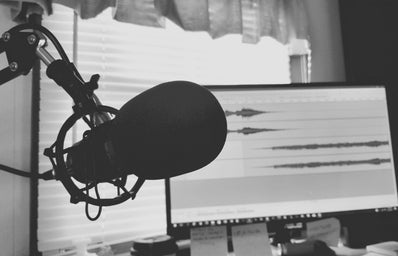Songs like Childish Gambino’s “This is America” or Foster the People’s “Pumped Up Kicks” are well known for their political messages and social commentaries. We get a general sense about what the songs are referencing, but if you pay close attention, the artists have said a lot more than you might have noticed upon first hearing it. We listen to music every day, but how much are we really listening? It is easy to glean the meaning of the songs when it is plainly stated, but many artists have deeper meanings or references that we often don’t catch. So, let’s take a deeper look at some popular songs which have references that are easy to miss.
“This is America” is obviously a commentary on what it is like to be Black in America, but there are specific references Donald Glover makes that you might not have caught. The song addresses gun violence and police brutality but did you catch how the lines “This a celly / That’s a tool” does this? To start, ‘celly’ is slang for a cellphone, while ‘tool’ is slang for a weapon. There is a dialogue created between the two lines; one person is saying they have a cellphone, while the other person is saying it is a weapon. Two months prior to the release of the song, 22-year-old Stephon Clark was shot and killed in his own backyard by two police officers while holding a cellphone. This is likely what Glover is referencing with these lines. Other artists such as J. Cole address police brutality more blatantly in their songs; in “Neighbors,” Cole has a line about “a Trayvon kinda fate” to reference the murder of Trayvon Martin.
The song “TRRST” by IC3PEAK gained traction on TikTok after becoming a popular sound due to its English lyrics: “Mama, they say I’m a terrorist, what? / I did nothing wrong, but I got on a blacklist.” While Americans were using this sound to make references to issues in the US, the band originated in Moscow, Russia. Many of their songs talk about issues in Russia, and this specific line was about how they have been blacklisted for speaking out against Putin. We miss much of this since many of their songs are primarily in Russian.
Another TikTok sensation was “In My Room” by Insane Clown Posse. The sound only captured these few lyrics: “Love, I can’t ignore you / In my room / Do anything for you / Love, I do adore you.” Because of this cutoff we don’t quite understand what the song is really about. ICP has a reputation for songs with political and social commentary, and this song is exactly that. This is a song about a loner who is imagining a ghost coming to his room every night, and he kills people in the hopes that she will come to life; “She told me she was spotted by the neighbor’s kid / She can’t come back now ’cause they know our secret / Unless I can make them keep it / If I do, she may come to life / Now I’m in their yard with a shotgun and knife.” The song is an allusion to serial killers; a man who hears voices, kills animals, and could even be your neighbor. Out of context, it’s just a trendy TikTok sound, right?
The Weeknd has a reputation for putting a lot of thought into his live appearances, lyrical choices, and his music overall. So, it is no surprise that his new album follows this pattern. His song “Gasoline” is a nod to earlier in his career when he relied on drugs to write music. An interesting reference I noticed was in the lines: “I’m dozing off to R.E.M. / I’m tryin’ not to lose my faith.” This was an interesting way to make a reference to the R.E.M. song “Losing My Religion.” Now this certainly isn’t a new phenomenon, music has been a way to revolutionize societies for ages. An older example of this is “War Pigs” by Black Sabbath. This song criticizes politicians for starting wars while they are not the ones who face the consequences, such as actually fighting: “Politicians hide themselves away / They only started the war / Why should they go out to fight? / They leave that role to the poor, yeah.” This song was released in 1970, many men feared being drafted for the Vietnam War during this time, and many more protested involvement in the war. “War Pigs” is certainly an anti-war song, and according to Geezer Butler, the band’s bassist and lyricist, it reflected his own fears about being conscripted. War has been a source for inspiration and reaction for many songs. Set in World War I, Metallica’s “One” is about a soldier who loses all his limbs and senses. An interesting addition of these themes of war in the music video is that morse code is used at one point. So, next time you find yourself listening to music, check out the lyrics or ask yourself what is really being said by the lyricist; you might learn something new about an old favorite.


